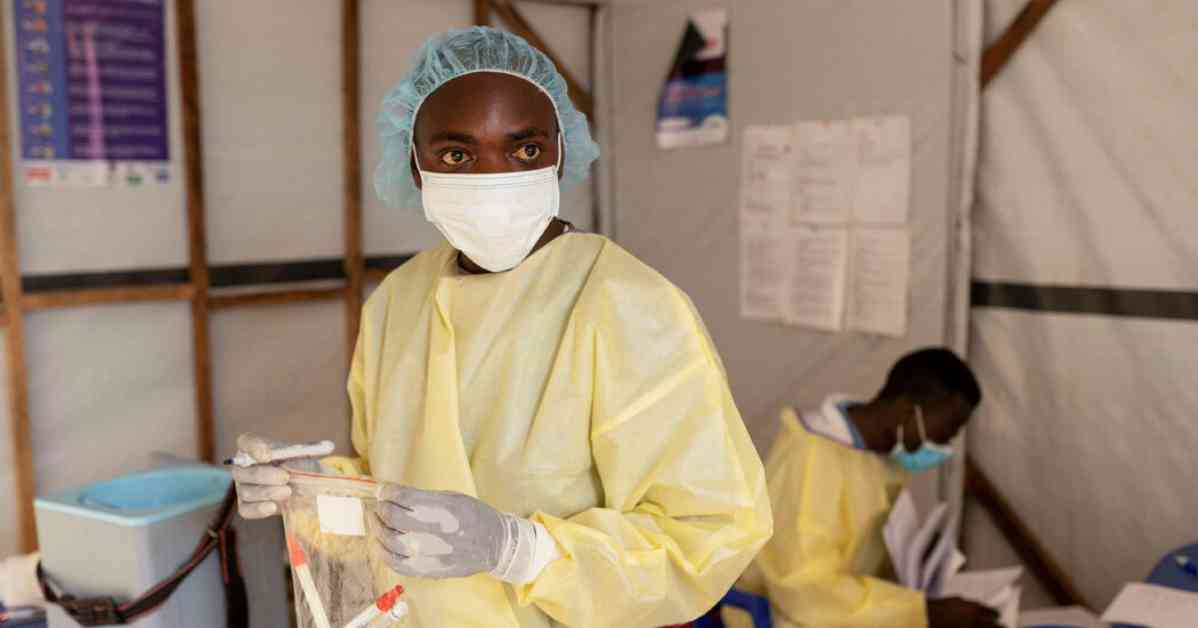Global Emergency Declared by W.H.O. for New Mpox Outbreak
The World Health Organization (W.H.O.) has declared a global health emergency due to the rapid spread of mpox, formerly known as monkeypox, in African countries. This announcement comes as the epidemic continues to plague the Democratic Republic of Congo (D.R.C.) and has now appeared in a dozen other African nations.
The current outbreak of mpox is particularly concerning as it marks the second time in three years that the W.H.O. has designated it as a global emergency. The previous outbreak in July 2022 affected nearly 100,000 people, primarily impacting gay and bisexual men in 116 countries and resulting in approximately 200 deaths. However, the current threat is even more severe.
Since the beginning of this year, the D.R.C. alone has reported 15,600 mpox cases and 537 deaths. Among the most vulnerable groups are women and children under the age of 15. Dr. Tedros Adhanom Ghebreyesus, the Director-General of the W.H.O., expressed deep concern over the situation, highlighting the rapid spread of a new clade of mpox in eastern D.R.C. and its detection in neighboring countries that had not previously reported cases of the virus.
The outbreak has now spread to 13 countries in Africa, including some that had never encountered mpox before. This has prompted the Africa Centers for Disease Control and Prevention to declare a “public health emergency of continental security,” marking the first time the organization has taken such action since being granted the authority by the African Union last year.
Dr. Nicole Lurie, the Executive Director for Preparedness and Response at the Coalition for Epidemic Preparedness Innovations, emphasized the importance of swift action to contain the spread of the virus. She stated, “It’s in the interests of the countries, of the continent, and of the world to get our arms around this and stop transmission as soon as we can.”
The global community must come together to address this critical health crisis and prevent further devastation caused by the mpox outbreak. The following sections delve deeper into the implications of the emergency declaration and the urgent measures needed to combat the spread of the virus.
Implications of the Global Emergency Declaration
The declaration of a global health emergency by the W.H.O. signifies the severity of the situation and underscores the need for immediate and coordinated action to contain the outbreak. This designation allows for increased international collaboration, funding, and resources to be directed towards combating the spread of mpox.
The fact that the current outbreak is the second global emergency declared for mpox within a short timeframe highlights the persistent threat posed by the virus. The escalating number of cases and deaths in the D.R.C. and the spread to other African countries demonstrate the urgent need for a comprehensive and rapid response to prevent further devastation.
The implications of the emergency declaration extend beyond the affected regions, as the interconnected nature of global health means that the spread of mpox in Africa could have far-reaching consequences. The potential for the virus to spread to other continents underscores the need for swift and decisive action to contain the outbreak before it becomes an even greater global health crisis.
Urgent Measures to Combat the Mpox Outbreak
Addressing the mpox outbreak requires a multi-faceted approach that encompasses various strategies to contain the spread of the virus and protect vulnerable populations. Key measures that must be implemented include:
1. Enhanced Surveillance and Monitoring: Increased surveillance and monitoring of mpox cases are essential to track the spread of the virus and identify hotspots where intervention is most needed. This includes rapid testing, contact tracing, and data collection to inform public health responses.
2. Vaccination Campaigns: Vaccination campaigns are crucial in controlling the spread of mpox and protecting at-risk populations. Access to effective vaccines must be prioritized, and efforts to increase vaccination coverage in affected regions should be intensified to prevent further transmission of the virus.
3. Public Health Education: Public health education and awareness campaigns are vital in promoting preventive measures, dispelling misinformation, and encouraging community engagement in response efforts. Clear and accurate information about mpox, its transmission, and prevention strategies can help reduce fear and stigma associated with the virus.
4. International Collaboration: International cooperation and coordination are essential in responding to a global health emergency like the mpox outbreak. By sharing resources, expertise, and best practices, countries can work together to contain the virus and prevent its spread to other regions.
5. Strengthening Healthcare Systems: Strengthening healthcare systems in affected countries is crucial to ensure that they have the capacity to effectively respond to the outbreak. This includes providing healthcare workers with the necessary resources, training, and support to care for patients and prevent further transmission of the virus.
Conclusion
The declaration of a global emergency for the mpox outbreak underscores the gravity of the situation and the urgent need for a coordinated international response to contain the virus. With cases on the rise in the D.R.C. and the spread to other African countries, swift action is imperative to prevent further devastation and protect vulnerable populations.
The global community must come together to support affected regions, implement targeted interventions, and prioritize efforts to control the spread of mpox. By implementing comprehensive strategies, enhancing surveillance and monitoring, and promoting vaccination campaigns and public health education, we can work towards containing the outbreak and preventing it from becoming a larger global health crisis. Collaboration, solidarity, and swift action are essential in the fight against mpox and in safeguarding the health and well-being of communities worldwide.


















